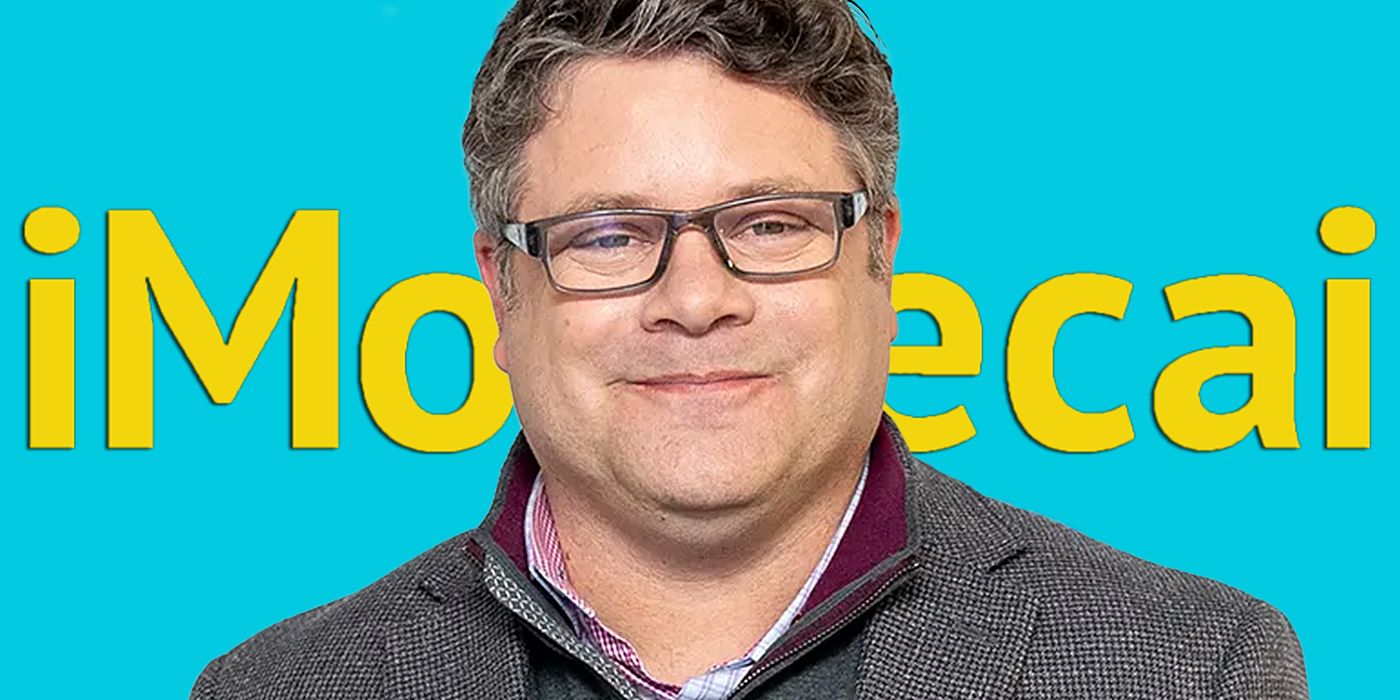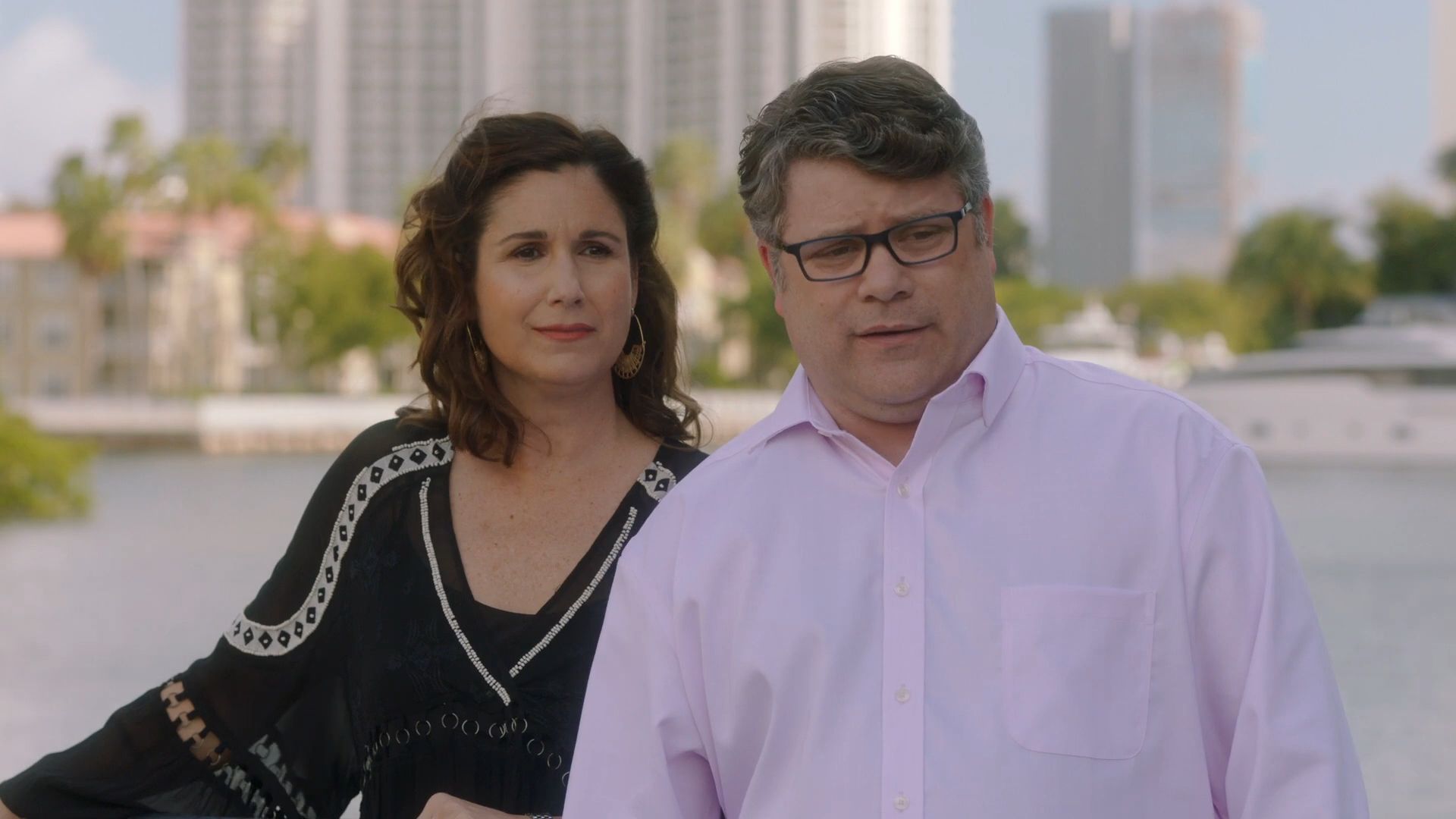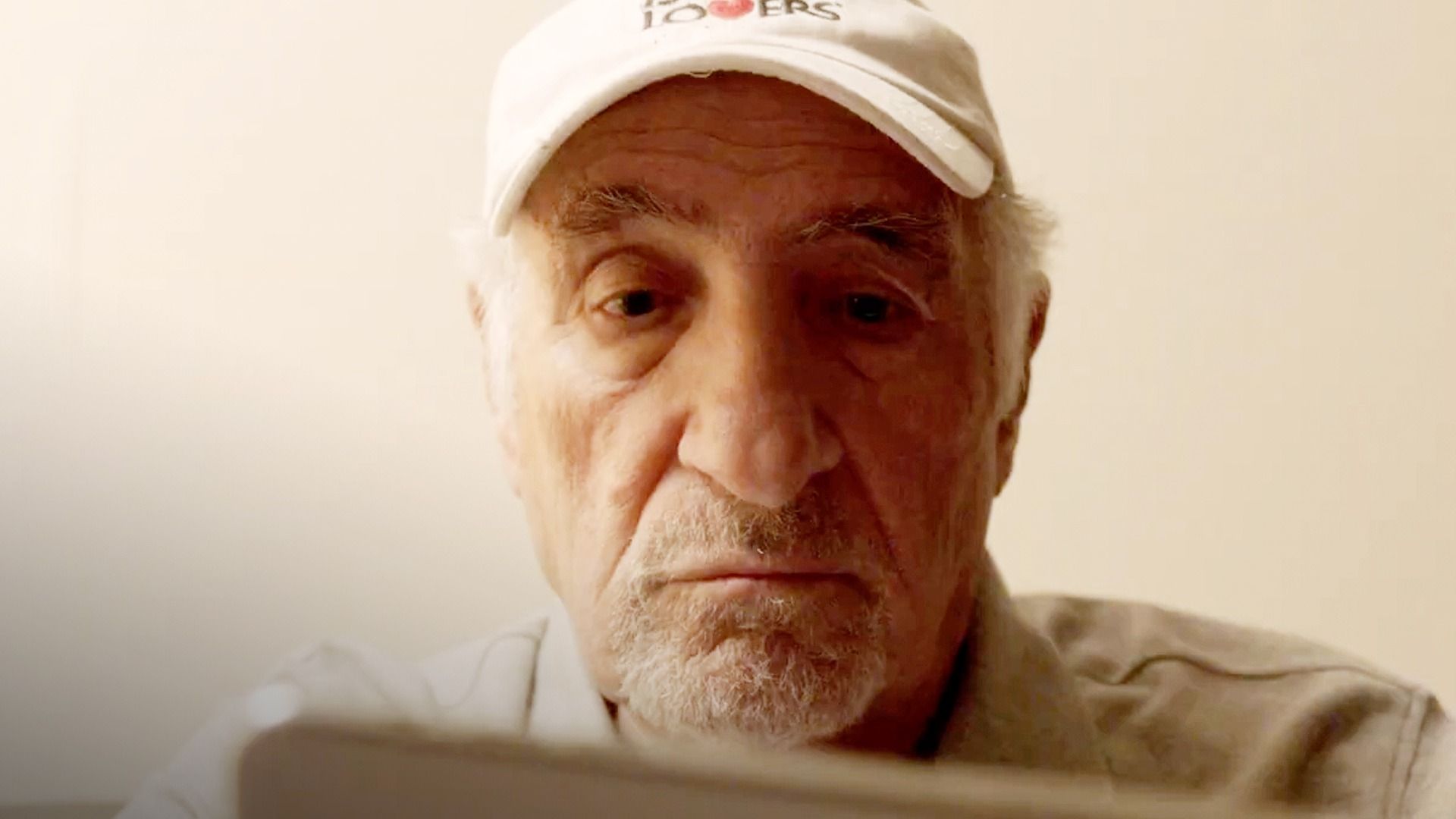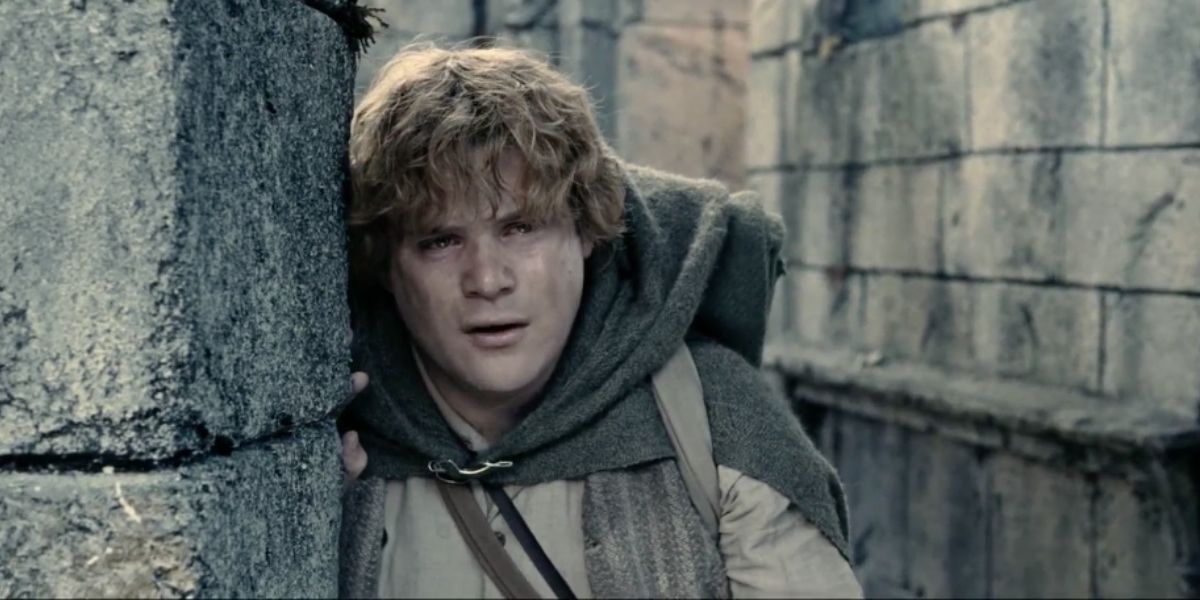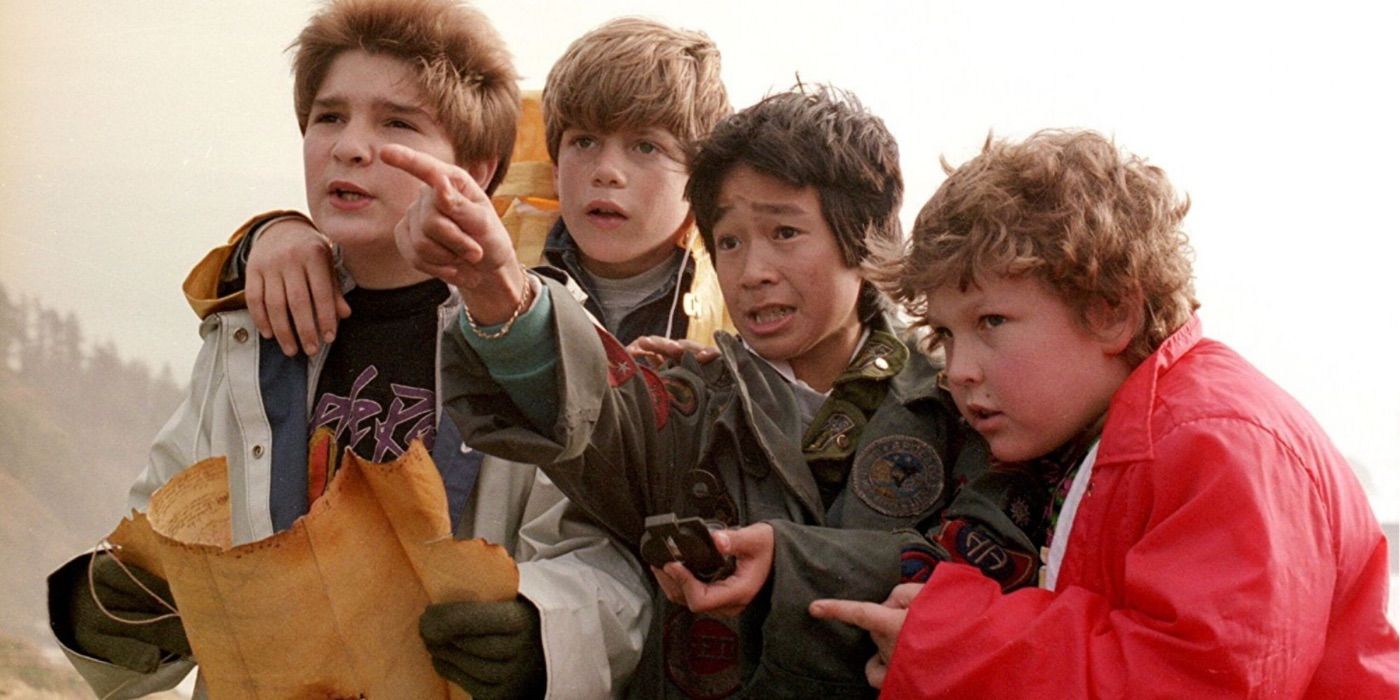Sean Astin is no stranger to either big blockbuster franchises or smaller independent films. Most recently, he starred in indie iMordecai, in which he plays the son of Mordecai (Judd Hirsch) and Fela (Carol Kane) Samel, an elderly Jewish-American couple who find themselves struggling a bit in the modern-day world. That all changes when their son, Marvin (Astin), buys Mordecai an iPhone. The Holocaust survivor must find his way in a world that has changed so much around him. iMordecai is based on the true story of writer and director Marvin Samel's real-life experiences with his parents, and is available to view on demand.
Collider sat down with Astin to talk about iMordecai, and about The Lord of the Rings trilogy, The Goonies, Rudy and other projects that made him a household name.
COLLIDER: Your latest movie is iMordecai, which stars Judd Hirsch and Carol Kane as your parents. What was it like working with legends like Judd Hirsch and Carol Kane?
SEAN ASTIN: It's exactly what you'd hope and dream and expect, working with Judd and Carol. They're just effortlessly interesting and special, and you can't take your eyes off of them. You have to remind yourself that you're in a scene, and you're meant to be playing your part and not just to be enjoying what they're doing. Yeah, it was an absolute dream.
So what was it about this story that appealed to you? What made you want to be a part of it?
ASTIN: Well, it became clear to me early on in the process of Marvin [Samel] and I talking about doing the movie, and him reaching out that it was a story that had a lot of heart, mostly emanating from him, from Marvin, our writer/ director. This movie is essentially a love letter to his mother and father. And the idea that I was going to be playing him felt very natural, felt very comfortable.
I like him. He's a good person, and you can see when he's analyzing a situation or trying to work out a problem. He's coming at it from a position of– he just [has a] pure heart, and I think that just infused every aspect of this sweet movie. You know, his mom passed away just before we started filming, and in a lot of ways the movie is for his mom, his mom and dad, and about him. And so that carried with it, a lot of it was very poignant, emotional moments for him. This story was coming through him from his life... about himself, about his family, about his culture, about his values.
How is that different from playing a fictional character when you actually have the person you're playing directing the film?
ASTIN: You know, I've played many fictional characters, obviously, but then many characters who existed, Rudy being one of them. Obviously if the person's alive, and you can interact with them, you have the added benefit, or challenge, of absorbing who they are. In the case of Marvin, his mannerisms are fantastic. He talks with his hands. He's like … a classic guy, and I didn't tell him that I was doing it, but I was mimicking him back to himself when he'd be directing something, and I'd be like, "Yeah, but what do you think? Is this the thing, or what are we gonna do?" And at a certain point I said, “Marvin, look at me.” I go, “You notice anything about me?” He's like, what do you mean? I’m like, “[Do you notice anything about me, anything about what I'm doing? Think about it. Look at my hand, look at my hands.” When [he looked at my hands], he fell on the floor, he was laughing so hard because many people have teased him about that his whole life. I admired that about it because he is so expressive. So that was pretty great.
And then, I played another character in a movie called Woodlawn, who the writer/directors were brothers, the Irwin brothers. And I was portraying their father, and it was really interesting because they were writing about their father and a true story about a time in his life that was really before they came along. It was really fun to be with them and just say, "You know, I think your father would do this at this moment," and they'd be like, "How did you know? Yeah, he would do that at that moment."
But with Marvin, it wasn't like having to research a character in a novel, or something like that, or a character from some known franchise, or something like that. This is just helping a young filmmaker tell his story, and it was just– I don't wanna say it was easy, but it just felt very comfortable to help him. And then there were a lot of logistics challenges because, you know, he didn't have a lot of money. It was a lower budget movie, obviously, and he had visions of how he wanted to tell his story. And it was obvious that he hadn't practically considered how some of the visions he had, [how that] would translate into a practical thing. So, trying to help him navigate some of those moments was fun. It was just a lovely, lovely, rich, full, beautiful experience and I think you can see it in the movie.
Yeah, you definitely can. What do you hope people take away from the movie?
ASTIN: Well, the one thing we haven't talked about yet is the kind of celebration of Jewish culture and Jewish American culture. Marvin doesn't wear his identity on his sleeves so much when you're interacting with him, but it just comes through in the movie. And so I hope that people can, not unlike My Big Fat Greek Wedding or, you know, other movies that just capture a certain slice of a culture.
This [movie], it's iMordecai. How many Mordecais do you know that don't have as a part of their existence, their Jewish life. I don't know any. Of course, he might be the only Mordecai I know – and Mordecai, by the way, the actual Mordecai, his father who was with us while we were shooting, he's hilarious. He's just one of these great people from several generations ago who have a twinkle in his eye and a spirit. And I just hope people can enjoy this lovely comment on marriage and relationships. Carol and Judd, their characters, Carol in the movie, her character is suffering from dementia and so that brings with it its own problems. There are a lot of problems that are presented in the movie, but the movie doesn't want to live inside of those problems for too long. It wants to live inside of a celebration of life. And so, I hope people can enjoy that.
Everyone that I've talked to who's seen it is really delightfully happy, and I think when people see it, and they see the trailer, you get what you're coming for, you're getting wholesome. It is a genuine, wholesome good movie. And it's funny. I mean, Judd, to me, I could just watch Judd all day long. I mean, just as a character study if we were filming in a month, you know, and I just watch him walking over to whatever other side of the thing and coming back over, he's just– the way he walks, the way he talks, the way he thinks is an absolute study of a character. He's freaking brilliant. I mean, he's just absolutely brilliant. And that was apparent while we were making it, and it's a generational story, where across the generations there's appreciation. There’s so much going on in it.
What do you think the film has to say about parent/child relationships?
ASTIN: Well, I think especially as you get older, there's frustration for people of a certain generation. I'm 52 now. I think Marvin is younger than I am, and certainly, we were 1,000 years younger when we did this, right before the pandemic. I think this is my last movie before the pandemic. But there's a frustration that comes from wanting to be able to communicate better with the [other] generation, and yet it's so clear that that frustration is born out of love. And so, there's no cynicism in Marvin's frustration with his father's exasperating behavior. I mean, the father does things that could be dangerous, like, "Please don't do that." The mom does something when she's suffering where she could get hurt. And so there's a kind of embedded concern the older generation has from the younger.
And then just an appreciation, you know, there's something that happens when– Judd's character is an artist, right? And it's lovely to appreciate human beings for who they are and what they're doing, and what they think and how they feel. And I think when that appreciation is conveyed, it gives everyone a sense of calm confidence, and that confidence can be expressed as love and appreciation. And so I think it was fun for me to minister to Marvin because he'd be so worried and upset about what Mordecai would do, you know, and then Mordecai would do nothing bad. He'd be just absolutely fine, and I'd be like, "Marvin, he's fine." He's like, "Yeah, but you don't know." But he did, you know? Through my eyes, he was able to see his father in a way he was able to relax and appreciate in certain moments. So, I don't know what it has to say other than it attempts to depict it with earnest good humor.
I would be remiss if I didn't ask you about Lord of the Rings because we're coming up on the 20th anniversary of The Return of the King, which is hard to believe. So, what do you treasure most about that experience of filming the trilogy?
ASTIN: I think what I treasure most about it is the whole, the entirety of the experience, from going down in August of '99 to this now 20-year reunion of Return of the King. I mean, there's so much work and creativity and sacrifice and reward, and so many relationships, so much identity just wrapped up in the whole thing. The hobbits, we have this little text thread going with each other. We've been going for, I don't know, six months now where we just kind of interact with each other every day, and you just realize there are just certain things that you have in common with each other that nobody else has, and that's pretty special.
And so, my wife and daughter were there with me the whole time. And now Ali, who was 3 when we started filming, is 27 getting a Ph.D. I'm so grateful that the movie still seems to hold up for audiences, the special effects still seem to hold up, the performances, the mythology of it. And so, yeah, it's just a pretty, pretty huge privilege.
You've been a part of, of course, Lord of the Rings and The Goonies, and several iconic movies. You mentioned Rudy. Do people ever quote yourself back to you every day? What's the one you get the most?
ASTIN: Probably, “Goonies never say die!" I mean, that’s the one that you hear [the most]. People cry out "Rudy!" at me in the airports. I don't know if I get Lord of the Rings stuff quoted, kind of like in passing. But, you know, "There's some good left in this world," you know, "I can’t carry it for you, but I can carry you." Oh, actually, no, I know exactly what [the most quoted line] is, "Po-tat-oes! That's it. "Boil ‘em, mash ‘em, stick them in a stew." I've decided to come up with some more exotic, you know, kind of a scalloped [response].
So what's up next for you?
ASTIN: You know, I've done a few little things. I just did a thing called Shift. But, I play a Senator. It's kind of cool. The phase I'm at in my career right now, I don't seem at the moment to be doing kind of mainstream things, you know, I'm doing lots of little projects, lots of films that are kind of lower budget independent films. At some point you get cast in something that's more mainstream, or a bigger release, or something like that, but for the moment I'm just enjoying doing my grad school and doing these movies.
Your Goonies co-star Ke Huy Quan just won an Oscar. Have you been in touch with him? And what do you think about that?
ASTIN: That's pretty awesome. Jeff Cohen and I, Jeff Cohen is one of the other seven Goonies, he was Chunk, and he's since become an entertainment lawyer. He was, in fact, Ke's entertainment lawyer. He and I went to the Asian American Pacific Islander Awards, honoring Asian excellence in film and television. And we presented Ke with his award there. So we went and heard his speech on the stage and then escorted him back to have photographs, and it was very obvious at that moment that there was something special happening, that there was something special where the confluence of the movie and him and his life and experience that you just wanted, you just wanted more of it. It's a whole season of award shows. They won everything. When he came to the Academy Awards, and he was honored, and his reaction, and just to know Ke for nearly 40 years, and to know his humility and his absolute goodness.There are a few people you can say are absolutely good, good in the absolute, that word, absolute gets thrown around the wrong way, but it means something. He is absolutely good. And so to know him for 40 years, and then to see him lock in and be able to have an artistic experience that was so powerful, and then to be recognized for it and for the industry to find a way to embrace him... I'm so proud of him. I'm so happy for him.
So there’s also Brendan Fraser, who was in Encino Man, also won an Academy Award, and my feelings about Brendan are the exact same, so proud of him, so happy for him. These guys deserve the opportunity to keep doing what they are doing. And it's really, I think audiences, the voting members of the Academy, the viewers of the show … they give themselves a gift when they award people like that with prizes. You know, they give themselves the precedent of being able to feel extremely good about what they've done.
Marvin is one of those people like Brendan and Ke, one of those good people that deserves warmth. His amount of energy and commitment to what he's done is so powerful financially, but emotionally, spiritually, mentally, physically, in terms of his commitment, his family. This guy, there's a lot of people who can afford to make movies now that would never be able to make movies in decades past, and some of them are making the absolute most of it. Marvin is making the most of it, and he deserves to keep on going.
iMordecai is available to stream on Roku. Check out the trailer below.

